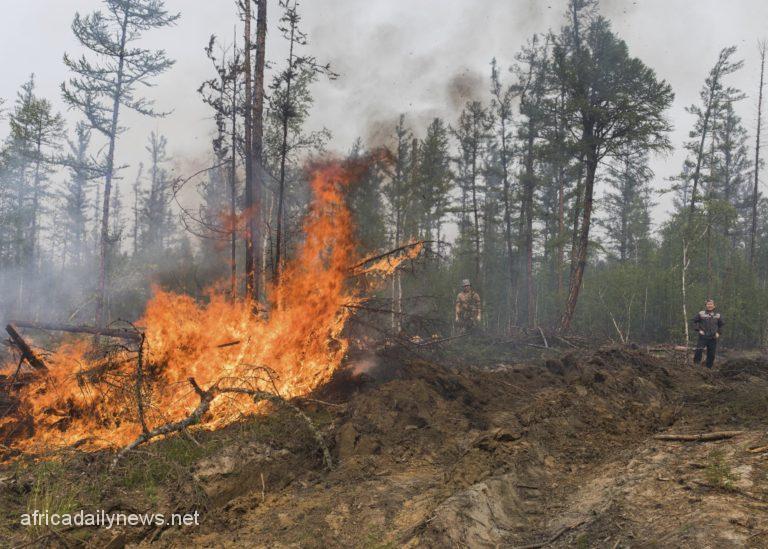Several fires have broken out in southern Siberia, Russia on Saturday, affecting about 200 buildings and causing at least five deaths, local authorities have confirmed declaring a state of emergency.
Africa Daily News, New York reports that the fires in the Krasnoyarsk region spread to some sawmills and a children’s playground, the regional ministry for emergencies said on Telegram.
Regional governor Alexandre Uss submitted that high winds of up to 40 metres per second, had brought down trees and power lines across large swathes of the region, sparking the fires which authorities said 300 firemen backed by 90 vehicles were fighting.
‘We have called for help from neighbouring territories but are aware that will in the best case not arrive for some hours,’ said Uss, adding temporary shelters were being opened for people in the worst-hit areas with medical and psychological support units also being made available.
Read Also: North Korea Test-Fires Most Powerful Missile Since 2017
‘I have given the order to cut off electricity in part of the region — save for survival facilities, service stations, and water supply systems,’ he said.
‘Extinguishing (the fires) is being complicated by meteorological conditions — violent winds are fanning the flames and preventing them from being put out,’ the ministry narrated.
Siberia has suffered from large-scale fires for some years. Last year, they belched 16 million tons of carbon into the atmosphere, according to an annual European climate report.
Africa Daily News, New York reports that several fires have broken out in southern Siberia in the last few months. According to official figures, these fires have affected no fewer than 200 buildings while causing many deaths in the process.
On May 7, local authorities had confirmed that they had placed the area under a state of emergency while trying to figure what could potentially be a long-lasting solution to the problem.
Africa Daily News, New York










